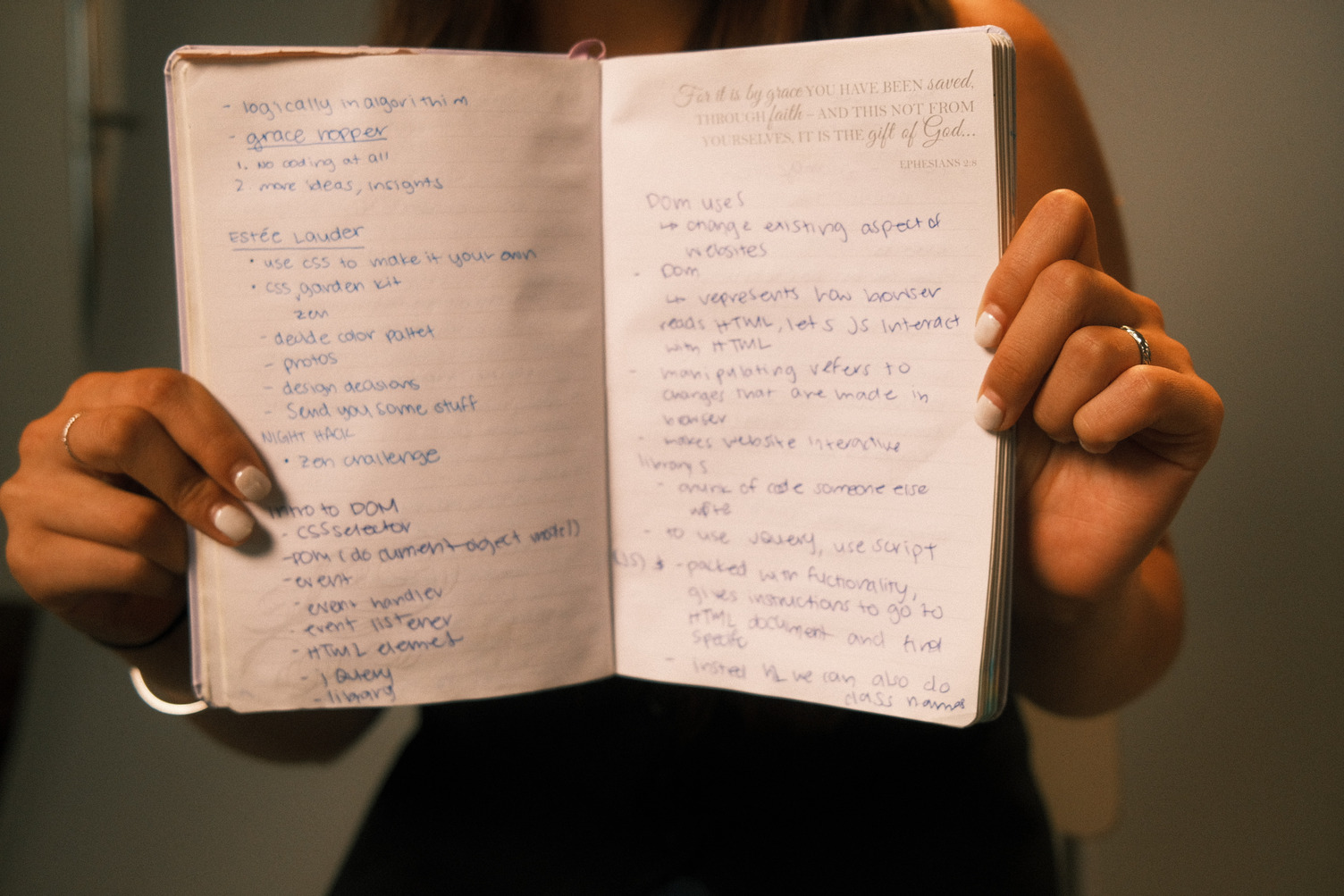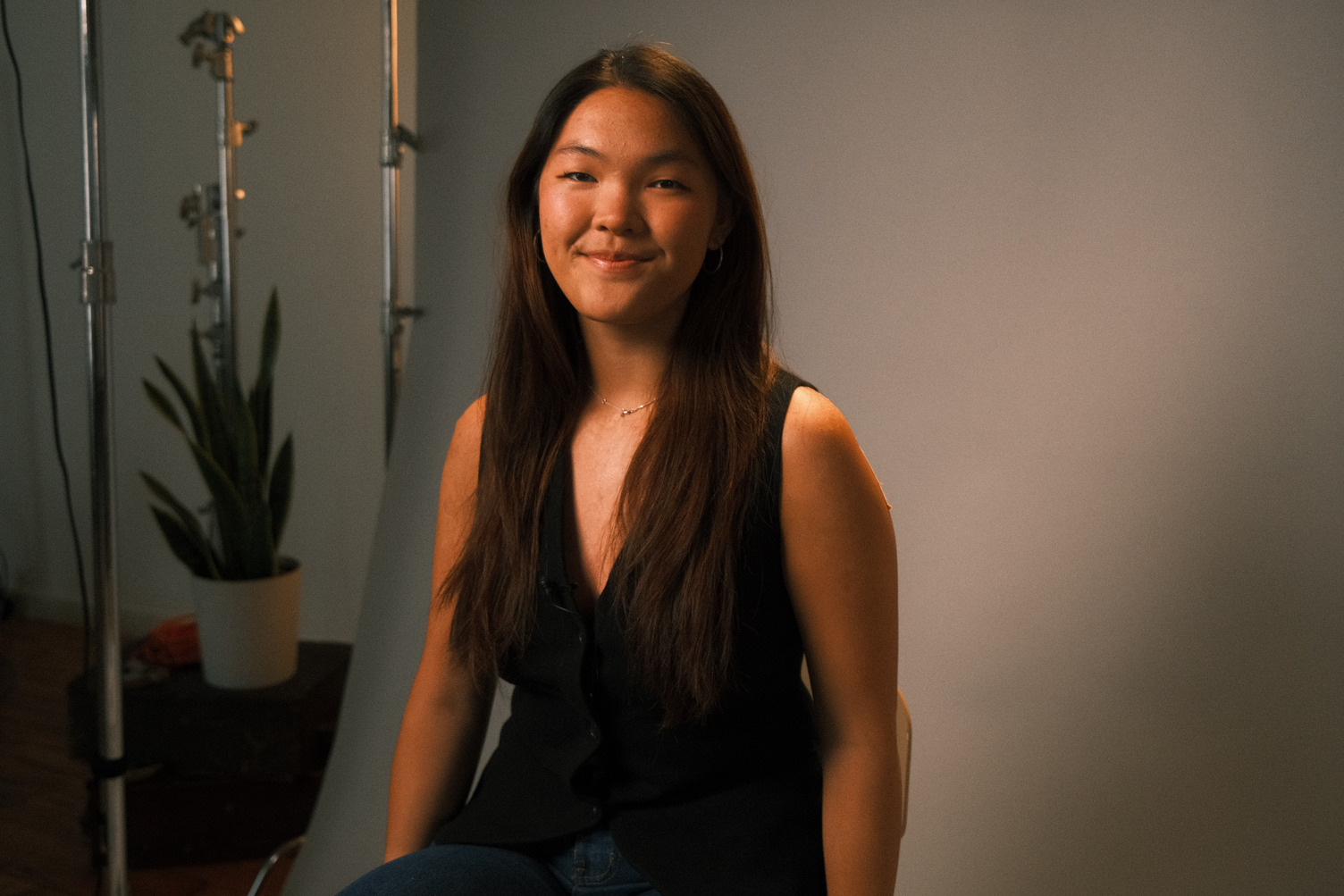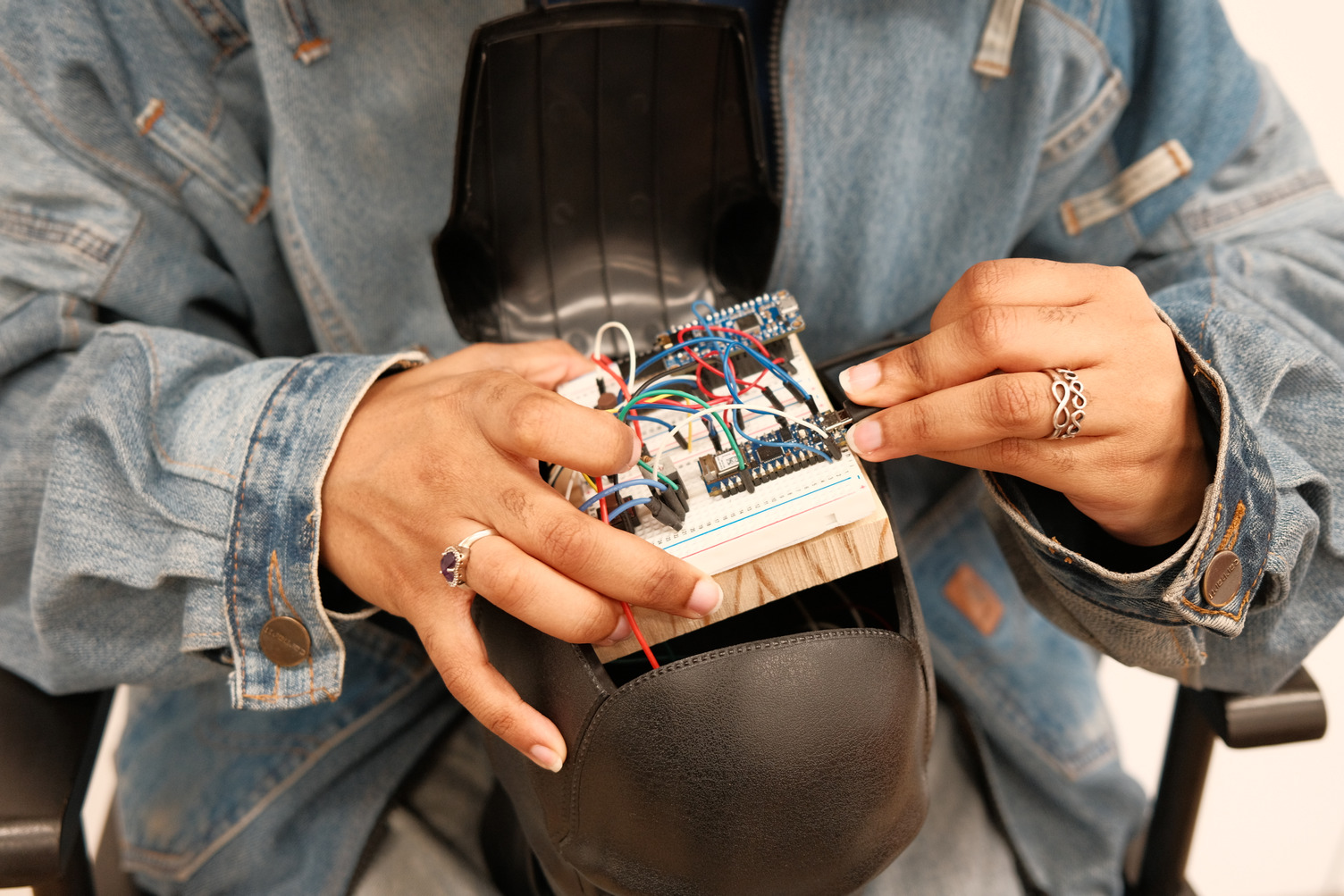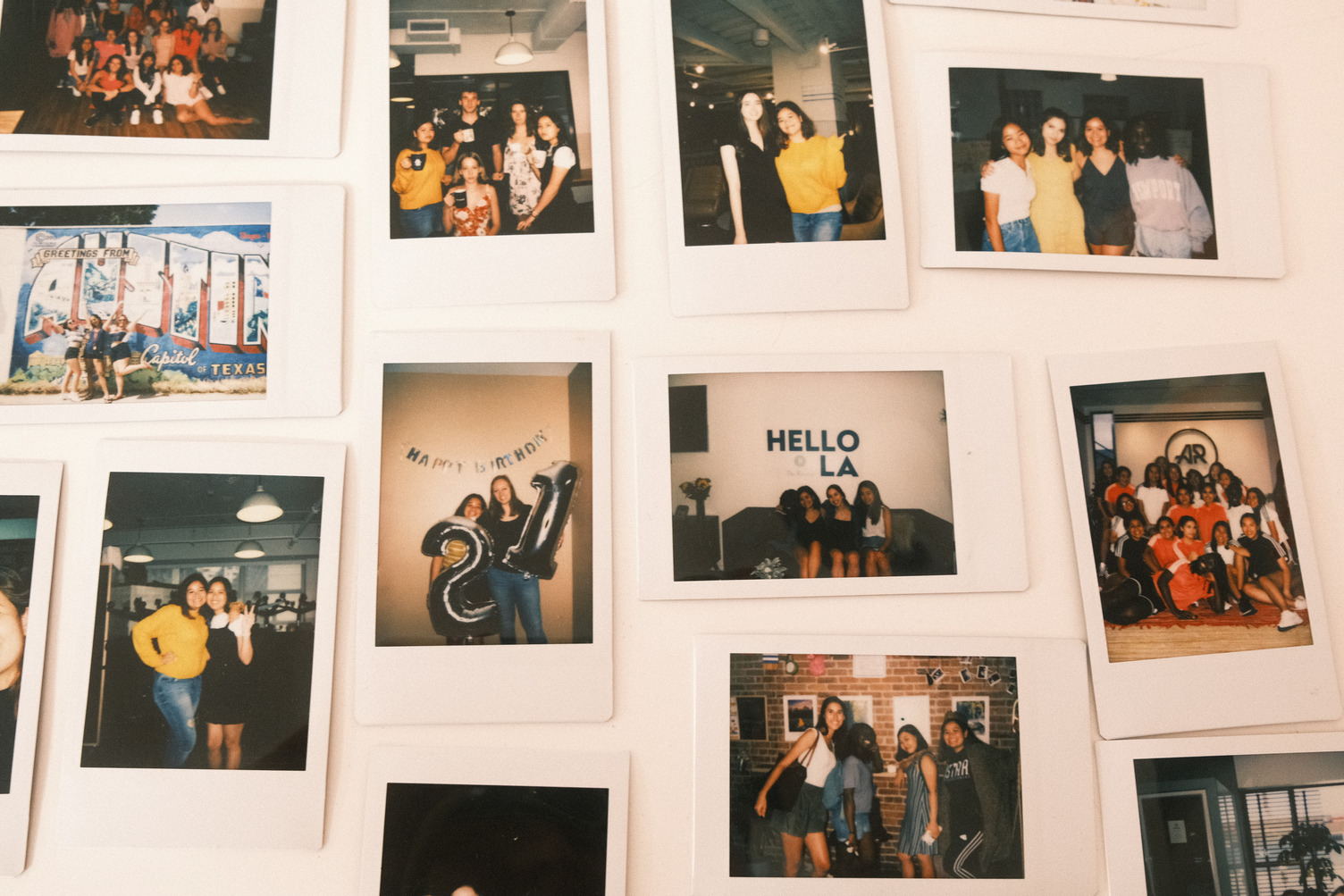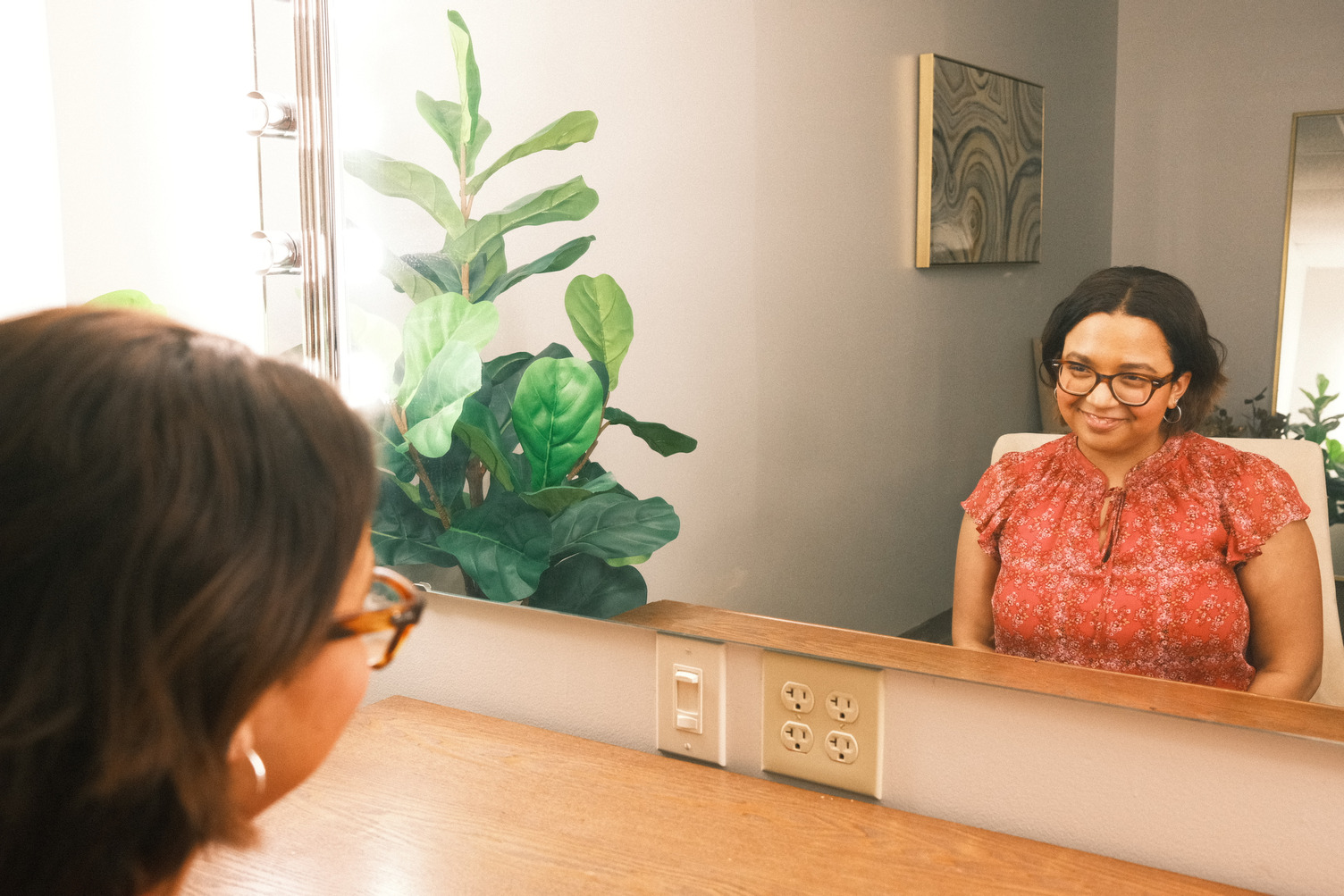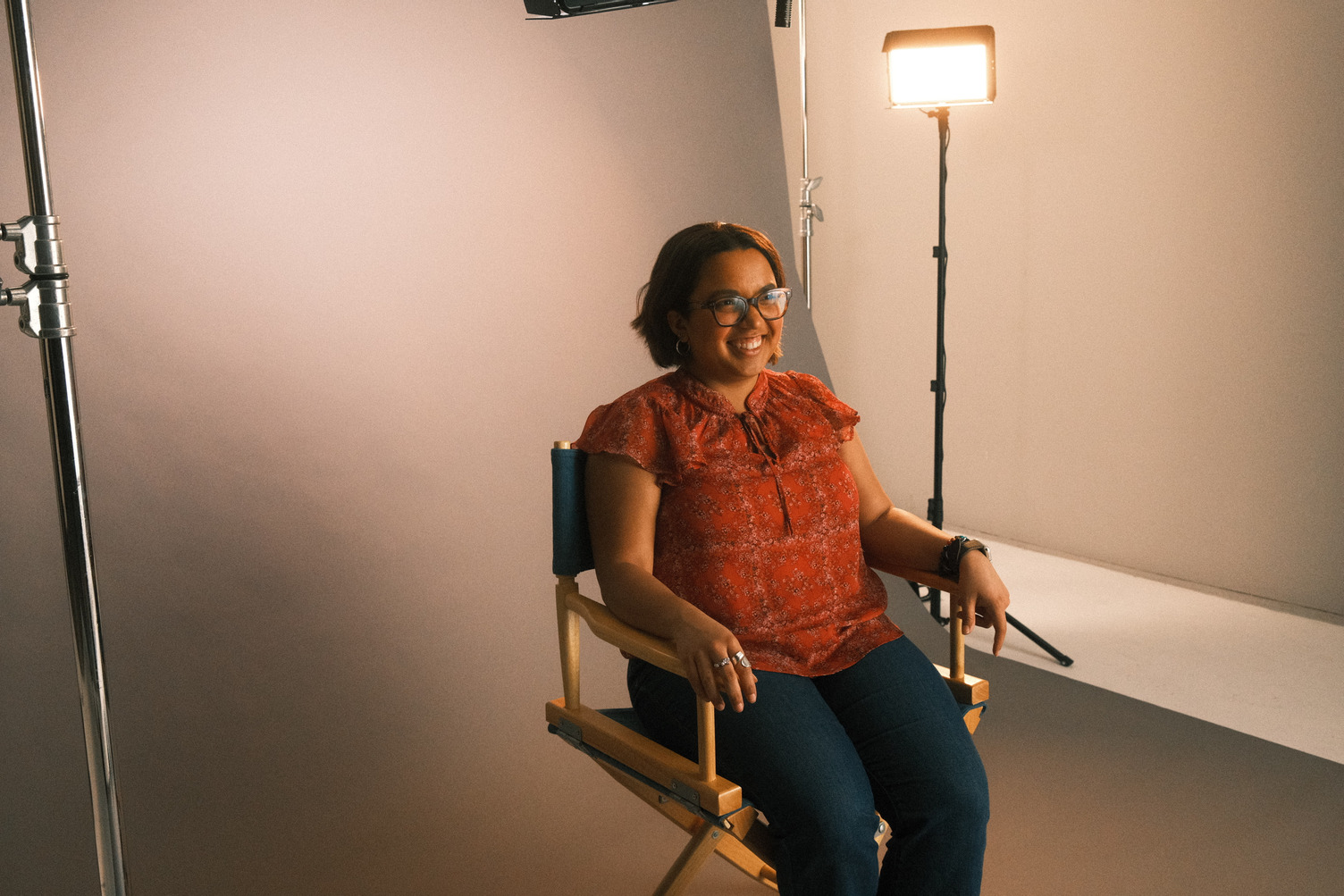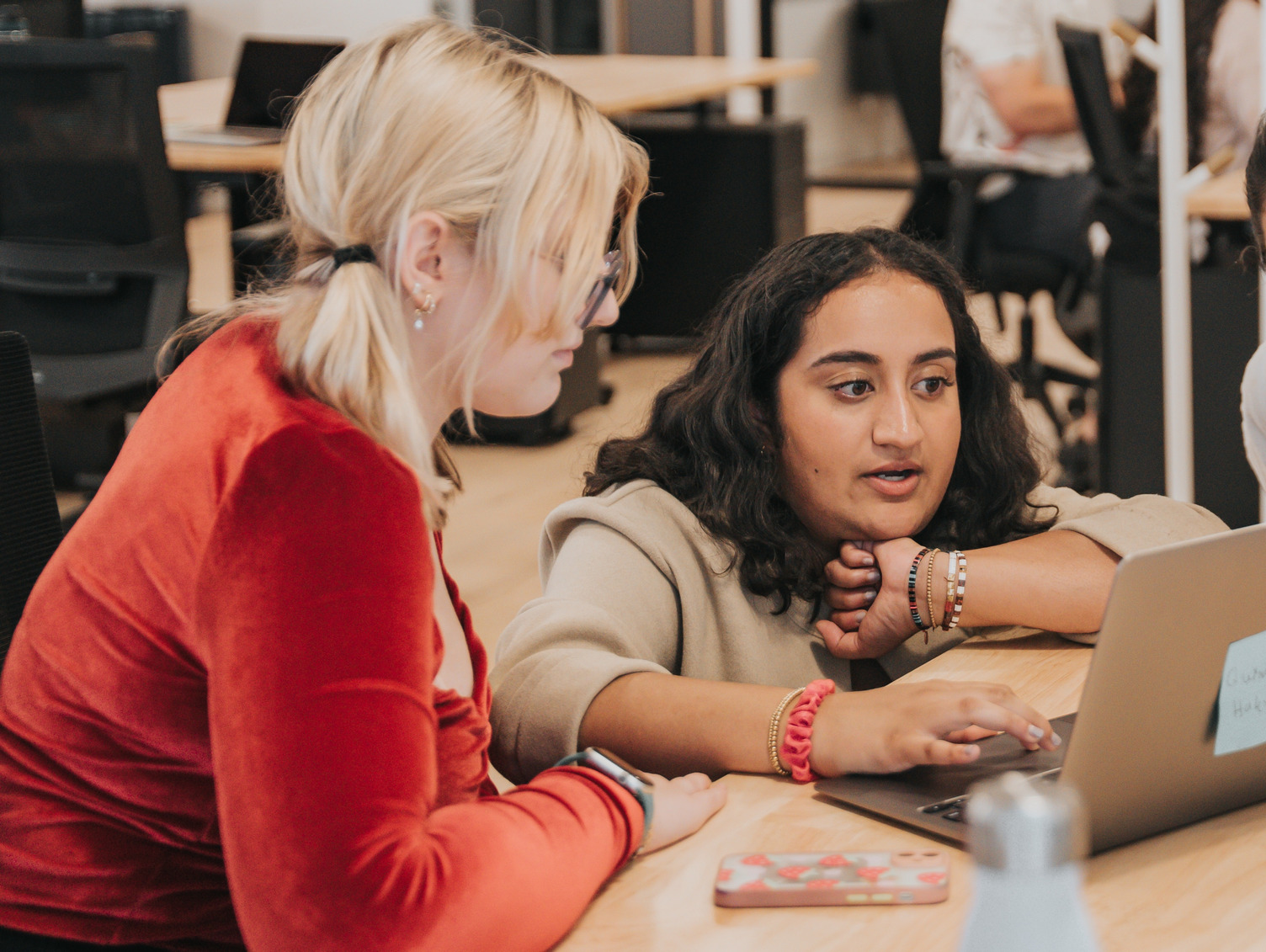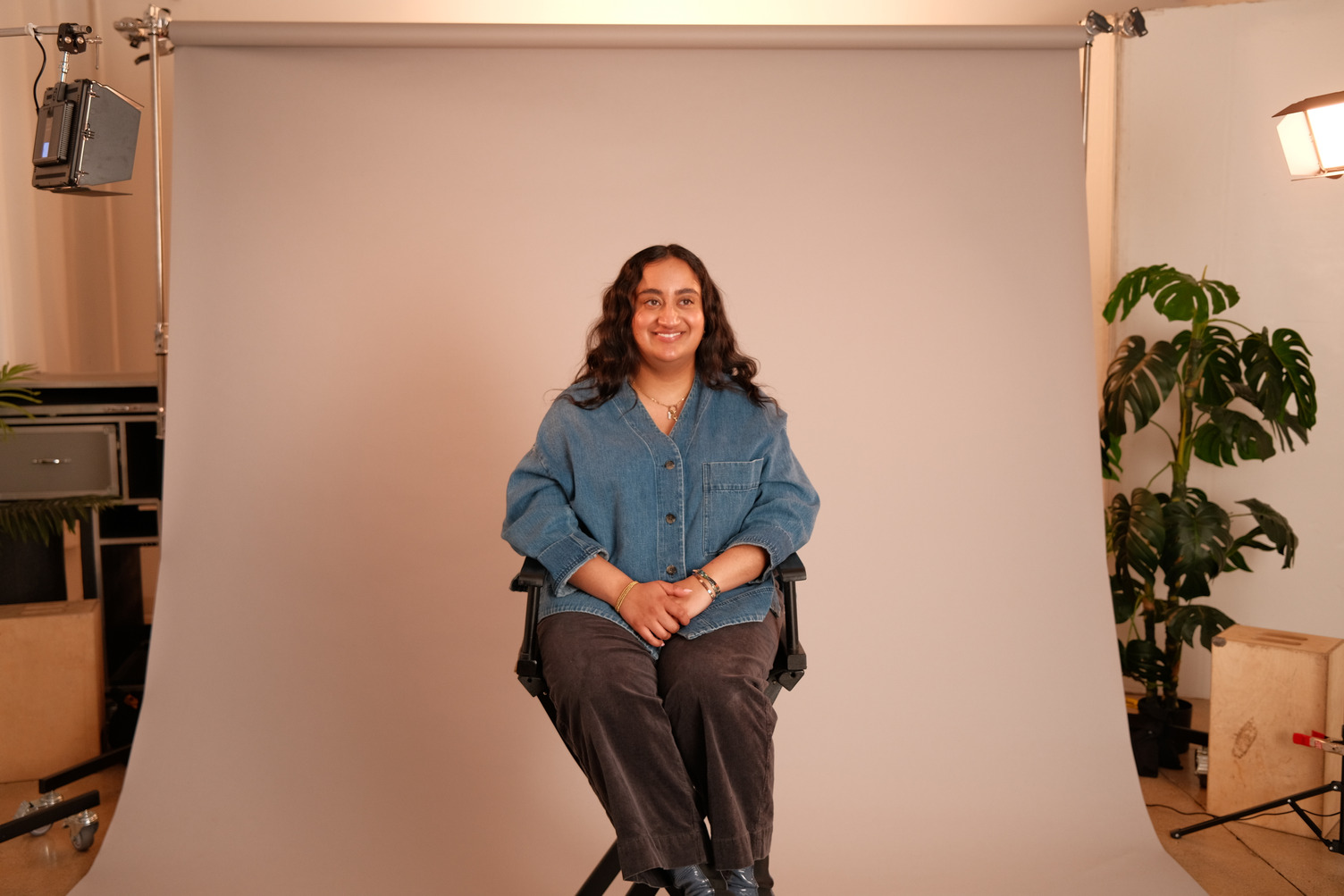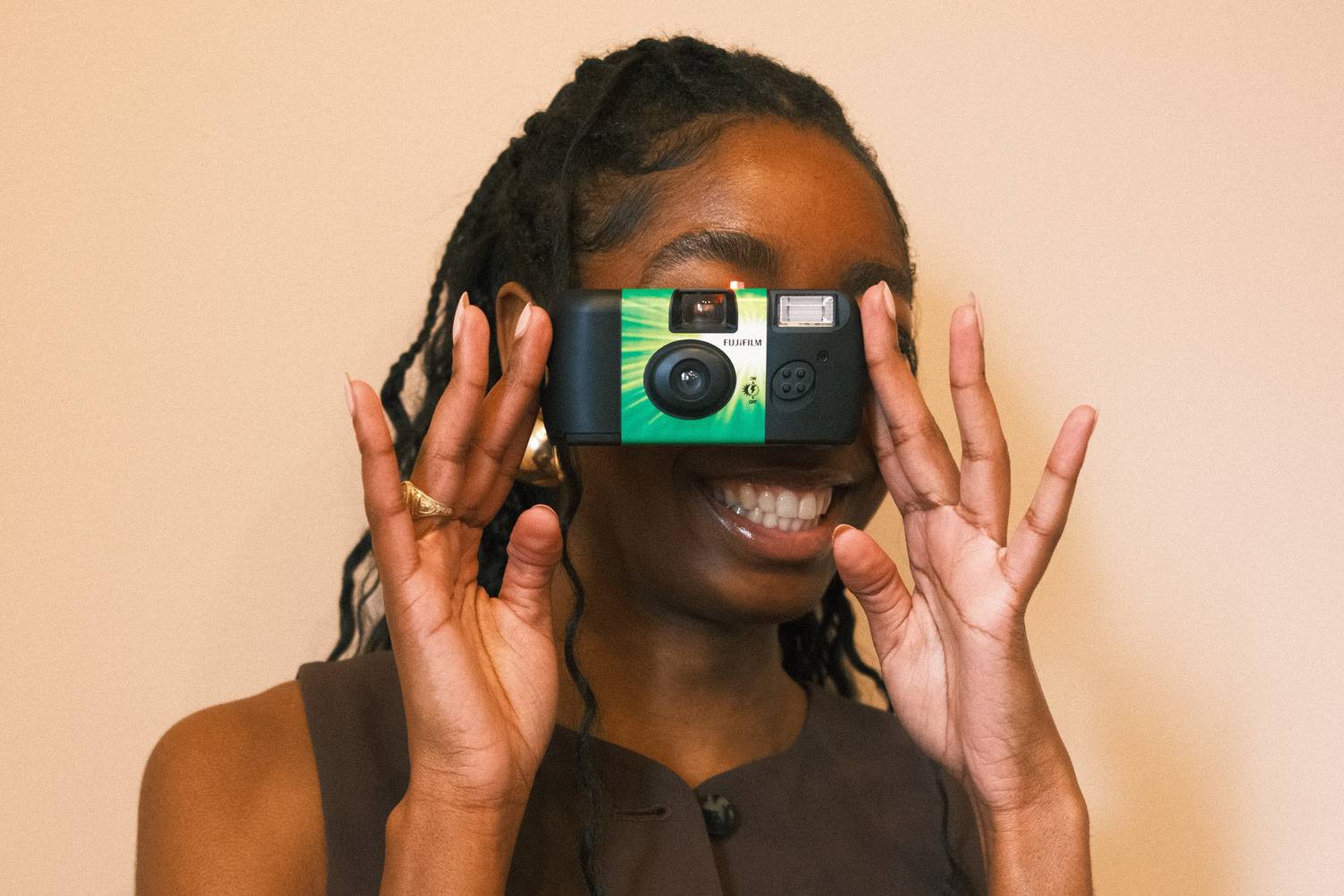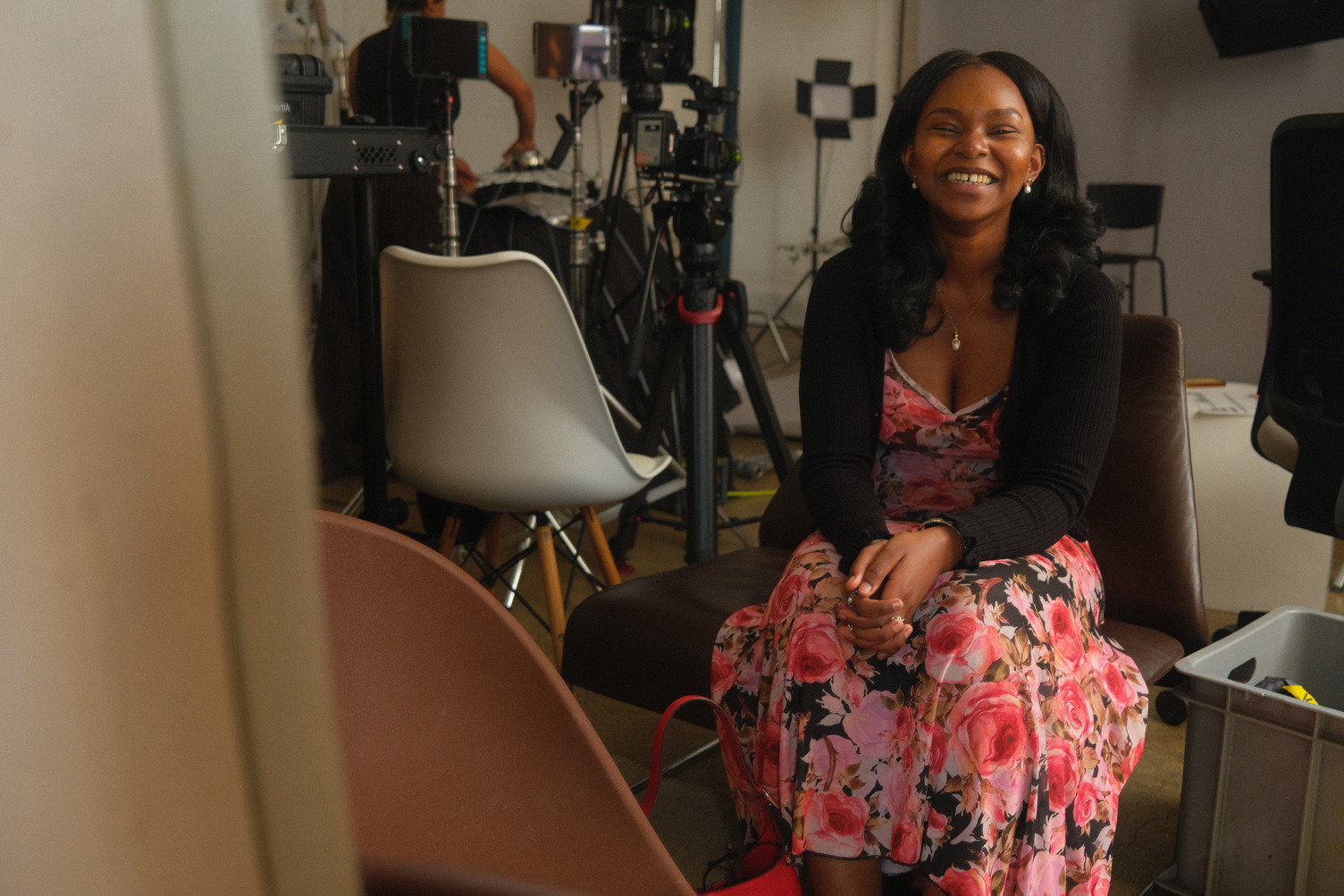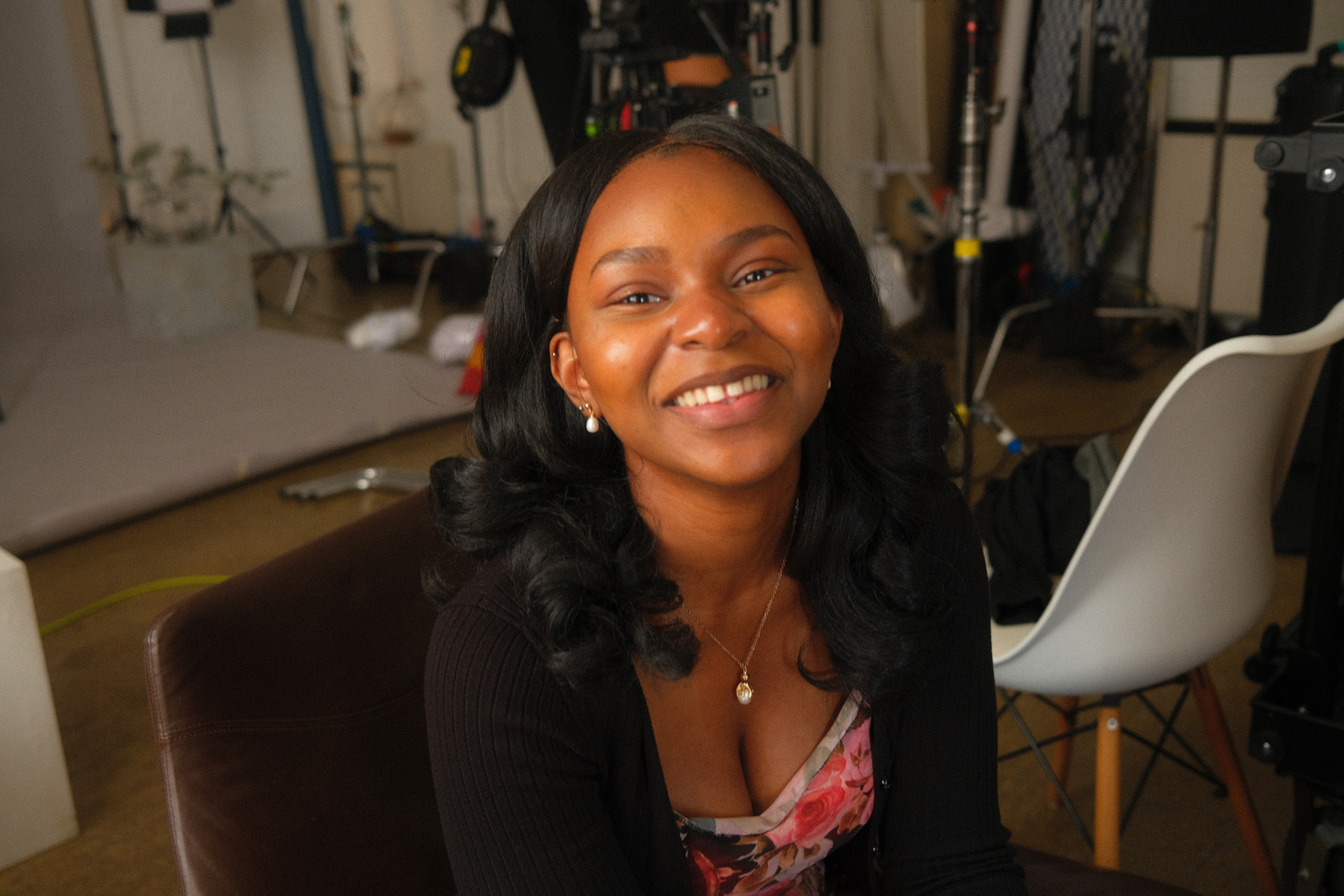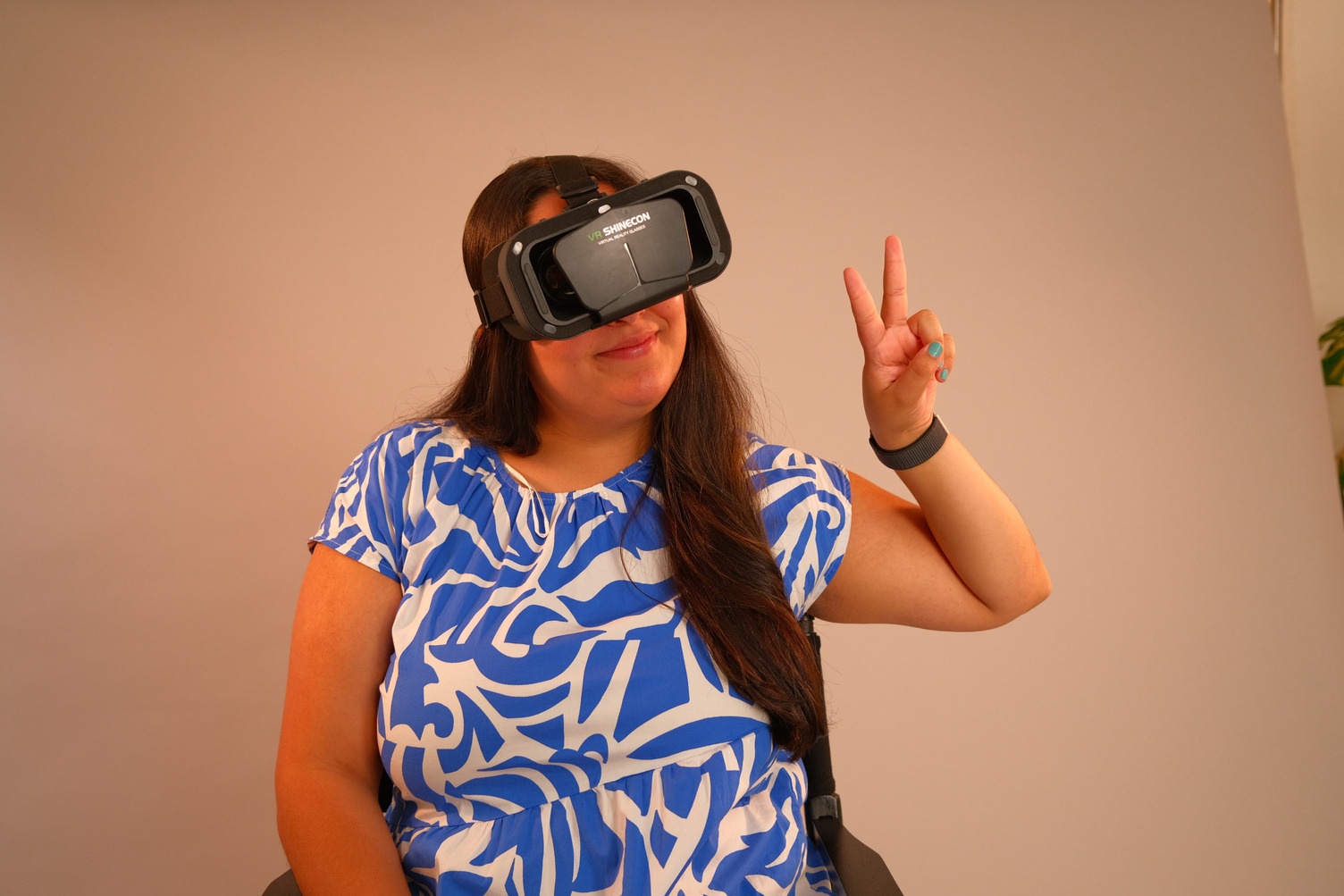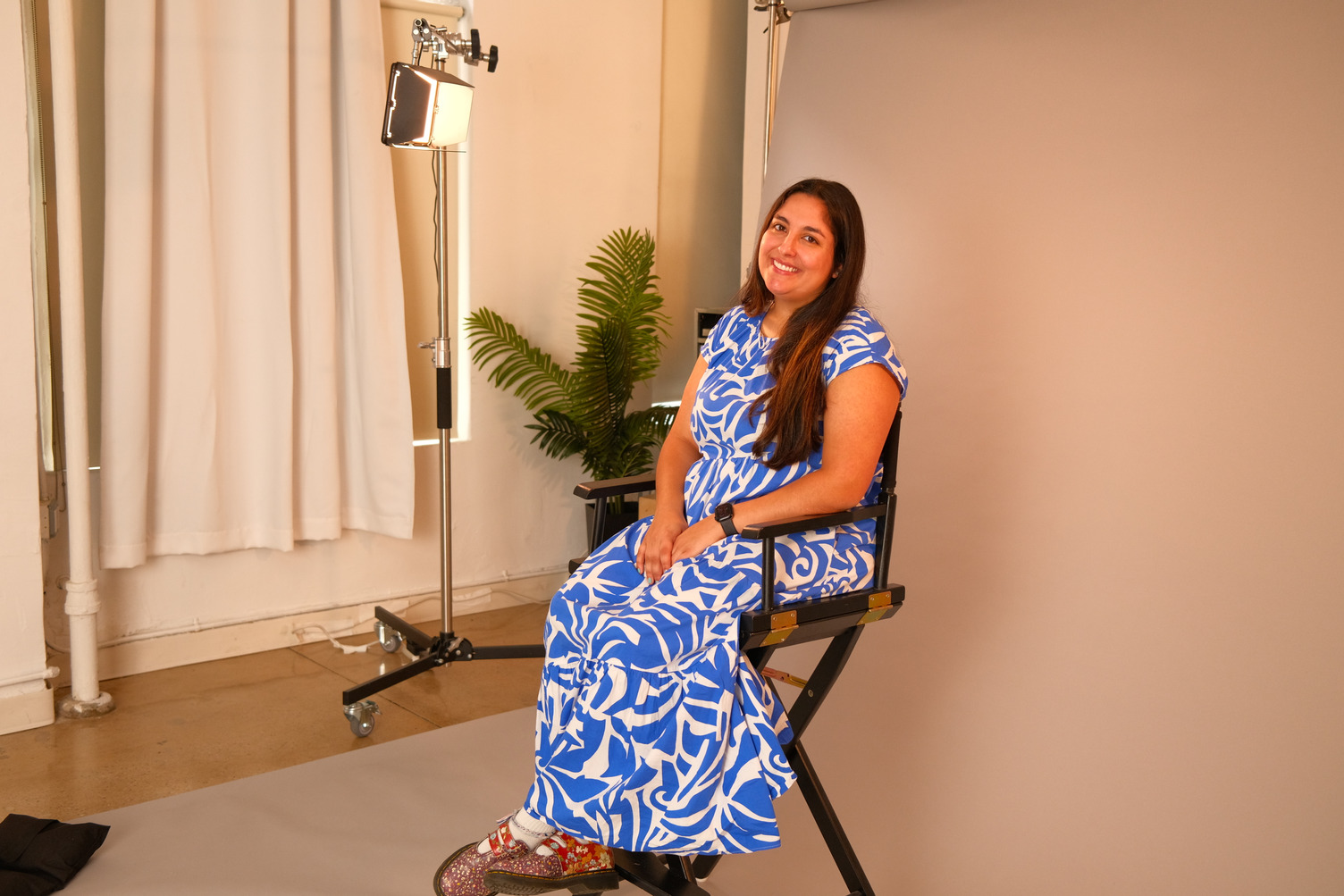March 27, 2025
2025 has been a year of foundation-shifting change in communities across the world. Against this backdrop, Kode With Klossy (KWK) is finding a way to celebrate a decade of our impact. From the initial 21 scholarships Karlie Kloss subsidized in 2015, KWK has been squarely focused on our mission to close the gender gap in technology.
KWK now supports a global community of almost 11,000 young women and gender-expansive youth in over 100 countries.
KWK awards fully subsidized scholarships to ~3,000 young people each year.
KWK alumni major or minor in computer science or engineering at ~18x the rate compared to women nationally (~70% vs ~4%)
Our work can be understood, in part, through the lens of our impressive data. However, a complete picture of our path-changing impact can only be appreciated by also telling the individual stories of our community. This new website will be your one-stop-shop for “KWK10” – Kode With Klossy’s 10th anniversary year of storytelling and celebration.
In addition to alumni stories, we will also share stories about the ripples of impact that have stemmed from our instructors, our partners, and our network of volunteers, supporters and advocates. To continue to support our global alumni community well into the future, we want to take stock of how far we have come in the last ten years. We also want to reflect on the current moment, and paint a picture of our vision and path for the years ahead. As AI ushers in the next inflection point in computing, KWK has evolved accordingly. In fact, AI has made it even more urgent to achieve our mission.
Understanding the Current Problem
KWK’s community is full of individual success stories; we are so proud to have been part of the journey for so many young people. However even with these individual success stories, the gender gap in tech remains as entrenched as ever.
Even though AI is a relatively new phenomenon in the workplace, already studies show women are adopting AI at a 25% lower rate than men on average. In 2022, according to the Equal Employment Opportunity Commission (EEOC), women made up 22.6% of workers in high-tech roles. This statistic is barely improved from the 22% of women represented in 2005. Only 3.8% of women nationally are studying computer science or engineering, and women receive ~20% of all computing degrees. This is a slight increase from prior years, but still hovers well below the 1985 peak when women received 37% of computer science (CS) degrees. Finally, despite efforts to make CS education accessible to every child in school, in 2024 just 32.5% of students who took foundational CS in high school were young women. Young men are twice as likely to take computer science as young women in high school despite having equal access in 60% of US schools.
As these numbers highlight, the gender gap has proven stubbornly resistant despite the number of efforts to make coding and STEM education more available. Our community members tell us about all of the programs they join in addition to participating in KWK. In many ways, unlike when KWK started 10 years ago, technical skill-building options are plentiful across platforms like Khan Academy and Coursera, and Codéxex as well as through the efforts of organizations like Black Girls Code, Girls Who Code, Code.org, and many others. Because of these access points, KWK alumni are learning key technical skills in-school as well as in out-of-school programs. The optimistic view is that efforts by organizations like KWK and others have stemmed the tide on further widening of the gender gap. But, it should go without saying, the current statistics on the gender gap in tech are sobering. They provide more than enough evidence to require us to try new interventions. Doing more of the same work is unlikely to produce a different outcome especially with AI rapidly changing the landscape around us.
KWK's Strategic Insights
With a decade of deep program work in this space, hundreds of educators that we have trained, and insights from our global community of almost ~11,000 young people, KWK has a unique perspective on the requirements for the work ahead to close the gender gap in tech:
TALENT RETENTION IS THE MOST CRITICAL OUTCOME
KWK differentiates itself because we provide longitudinal support to each individual community member across multiple years. We make a decade+ long commitment. A member of our community will participate in our programs from 13 years old until they are 26 years old. KWK becomes part of the essential supportive infrastructure through each stage of that young person's education and career development. KWK keeps ambitious young women and gender-expansive young adults committed to the technical pathway in the face of headwinds that otherwise might derail them.
In KWK's view, it is impossible to close the gender gap in tech without being oriented to the goal of retaining talent on their journey over time. You cannot close a gap when those who start the journey don't reach a meaningful milestone that will change the structural composition of the industry. A technical degree is the beginning of a lifelong learning journey. Getting hired is the beginning of a multi-year journey to make a meaningful contribution in the workplace. These milestones are often seen as the end goal, when in fact they are just the beginning.
This is why at KWK we think about what we do as technical talent retention, not as coding education. Education is the entry point, but the ultimate measure of our success is keeping our community members committed to a lifetime of technical literacy and curiosity that fuels them to become leaders in the workplace.
Retention and repeat engagement is the driving force of the KWK program model. Over multiple years, alumni return to KWK as their home base even while they participate in other programs and do formal schooling to build & deepen their technical proficiency. Retention of technical talent is how we will change the gender representation of the tech industry. Our longitudinal program investment, designed as an intentional continuum of care, is central to our ethos.
EXPERIENTIAL LEARNING CREATES REPEAT ENGAGEMENT
Every KWK program is driven by the same underlying principles. Our programs are rigorous and project-based, joyful and relational, and inclusive and accessible. Young people join our community between the ages of 13-18 years old through our onboarding programs like Code-a-Bration and Camp. Code-a-Bration is an AI & machine learning (ML)-focused workshop, while our immersive Camps offer 4 core curricula – web development, mobile app development, data science, and AI/ML. Our community members can return year after year to take each of the four Camp curricula we offer.
Beyond the rigor of the technical skills and curricula, our project-based learning approach allows KWK to teach our participants 21st century workforce skills (a.k.a. durable, human skills) like creative and critical thinking, collaboration, and communication. Furthermore, we ground all of our programs with career-connected components, working with incredible corporate partners to engage their employees in meaningful volunteering through mentorship in our programs.
Once alumni of our programs turn 18, we curate additional learning opportunities – directly through KWK programs and beyond KWK. In fact, 70% of our ~11,000 alumni are now 18 years or older. We help our alumni navigate the sea of information about jobs by curating a focused set of opportunities we distribute through our digital community platform. We have also partnered to build exclusive technical internship opportunities available only to members of the KWK community. Our alumni can also participate in KWK programs like our virtual coding Challenges or our Coaching program. In Challenges, alumni work on a coding project focused on an issue of interest to a KWK corporate partner. These co-created project challenges allow our alumni to practice and sharpen their coding skills while building a portfolio of side projects, and getting mentorship from employees of our partners. Coaching is our newest program that will launch in mid-2025. Our Coaches will use YouTube to help the KWK community — and young people outside of our community — build AI literacy, develop AI confidence, and eventually grow in their AI mastery.
In addition to Challenges and Coaching, alumni who are 18 years old and over can become KWK Instructor Assistants (IAs). IAs are near-peer leaders who work alongside KWK Instructors. They are similar to teaching assistants in colleges and universities. However, KWK IA’s are also culture carriers. They ensure that scholars participating in Code-a-Bration or Camp have the same formative experiences they did. Becoming an IA requires additional technical and instructional training from KWK. IAs practice leadership and classroom management skills. They also deepen their own technical skills by assisting their peers. The IA program is yet another way that KWK continues to invest in skill-building for our alumni community to keep them consistently invested in building and reinforcing their technical fluency. IAs are not only a critical part of KWK’s instructional approach, they are yet another demonstration of our talent retention focus.
SYSTEMIC & STRUCTURAL SOLUTIONS ARE REQUIRED
After 10 years of doing this work, we believe that supporting people individually is necessary but insufficient to reach gender equity in tech. Individual support helps people acquire skills, complete degrees, and get jobs. But, systemic issues ultimately thwart individual progress and achievement. KWK believes the current landscape is missing a systems change strategy that addresses the true root causes of the gender equity gap. Largely, the field to date – including Kode WIth Klossy – has offered interventions focused on individual skill-building and job acquisition.
Not all systems change efforts are well-suited to addressing the gender gap in tech. Efforts focused only on the objective of broad technical education access and participation will not solve the gender gap. Increasing the rates of skill & degree acquisition will not solve the gender gap. All of the empirical evidence to date showing the persistence of the gender gap provides ample evidence of this. The gender gap is a different problem to solve. Systems change efforts must focus on the correct root causes to be effective.
KWK believes the true root cause of the persistent gender gap in tech is a dual culture problem – popular culture and corporate culture.
Popular Culture is made up of the implicit and explicit attitudes, beliefs, values, and customs that shapes our personal worldview. Pop culture shapes our self-talk, our hopes and aspirations, and our behavior and life choices.
Corporate Culture is a result of the policies, processes, and procedures that shape experiences in the workplace. Corporate culture determines who is hired, fired, recognized, invested in, and rewarded. More importantly, corporate culture drives business outcomes. The age old axiom that "culture eats strategy for breakfast' is no accident.
WE NEED TO RESHAPE POP CULTURE
The narratives young women and gender-expansive youth are exposed to about who belongs in tech are a major hurdle to progress. Those narratives of belonging shape beliefs about what a "tech person" looks like, how they behave, and what they like to do. Unfortunately, we don’t have sufficient research for gender-expansive youth yet. For young women, research indicates these narratives are particularly detrimental between the ages of 13-18 when teens are in a sensitive identity-formation stage. The research shows that interest in STEM takes a precipitous nose dive during these critical ages compared to equal interest shown in girls and boys even slightly younger. While it is certainly never too late to begin a technical career journey, research also shows that starting early is helpful. For example, taking the Advanced Placement (AP) CS exam in high school makes a young woman almost 9x more likely to choose to major in CS in college.
At KWK, we are already making inroads to address these pop culture narratives. For our participants, KWK programs are tangible examples of what technical spaces can feel like when designed with the goal of inclusion. We care just as much about the experience of our programs (how we teach) as we do about the rigor of our “hands on keyboard” curricula (what we teach). As a result, our community knows what type of learning experiences they deserve. When experiences outside of KWK don't meet that standard, our members are less likely to blame themselves. Rather than defaulting to thinking "they are not smart enough", they can correctly differentiate between times when their personal efforts fell short and those times when the experience and and exclusionary culture failed them. KWK programs are direct manifestations of our community's inclusive culture. It's a culture we are intentionally designing. The KWK community cultural values are to:
Celebrate Ambition
Our members are given permission to be nerdy and curious. Trying hard is a positive indicator of a growth mindset. Our culture normalizes doing "hard things" because skill-building together is more fun than alone. It’s a culture where peer support is expected, not the exception.
Maintain Lifelong Learning
Our community culture rewards those who openly strive to be lifelong learners building their technical literacy. We offer our own programs, but we encourage our members to participate in as many programs as possible. Not only is this a cornerstone value, but research shows that involvement in multiple, well-structured programs can significantly bolster commitment to continuing education and careers in STEM and computing fields.
Intersect Passions & Technology
KWK fuels our community members' curiosity by actively showing how to combine their passions and interests with curiosity about technology. In the KWK community culture, young people know they can find their sense of belonging and resilience in tech through that intersection.
Just as it is true in the workforce, the most effective cultures drive talent retention. Our track record over the past decade proves we have a winning cultural formula in the KWK community. Our program return rates and the long-term engagement in our community is evidence of this. These metrics show that KWK is a home base for our alumni even among the number of other programs and communities they actively participate in. We will continue to do more work over the coming years to address the pop culture challenges that continue to drive the gender gap in tech.
WE NEED TO RESHAPE CORPORATE CULTURES
Recently, McKinsey senior partners Kweilin Ellingrud, Lareina Yee, and María del Mar Martínez published a book called The Broken Rung. The broken rung term was first coined in 2019 as part of the annual McKinsey and Lean In Women in the Workplace report. As the book authors describe it, the broken rung is “a phenomenon even more pervasive than the glass ceiling in holding women back from career success”. For every 100 men, only 81 women were promoted on average. This has been more or less the same for the last 10 years. The phenomenon is far worse in tech. For every 100 men in tech promoted to their first management position, only 52 women in tech are promoted. As the 2024 Women in the Workplace report highlights:
"[We've] seen more women rise to the top levels of companies. Yet women continue to be underrepresented at every level. To change the numbers, companies need to focus on where the real problem is. We often talk about the “glass ceiling” that prevents women from reaching senior leadership positions. In reality, the biggest obstacle that women face is much earlier in the pipeline, at the first step up to manager. Fixing this “broken rung” is key to achieving parity."
Today, a lot of emphasis is placed on helping young people in tech find internships and get hired for their first entry level jobs. But, the broken rung presents its own set of pervasive challenges for women in the workforce. In its own way, the broken rung is a talent retention challenge. Young women are not being retained on the leadership pathway in technology. Corporate culture -- policy, process, and practice -- is directly responsible for determining workplace retention outcomes including those around promotion and recognition.
To address the broken rung for women in tech, we need to address the problem of gendered performance bias that drives much of the disparity in promotion outcomes for first-time managers. In particular, equitable feedback and coaching are important inclusive management skills required for progress on this issue. Yet, the increase in the prevalence of inclusion training has not led to meaningful changes in behavior or outcomes. There are many reasons for this. In KWK’s view, this is in large part because employees are not given an opportunity to practice the skills they’ve been trained on. In learning science research, “deliberate practice" is essential to create skills-mastery. Inclusive management skills are no exception; practice is required. As such, we need to rethink current approaches to shaping high-performance work cultures where all employees can thrive.
KWK believes that employee volunteering is an untapped intervention to help build inclusive workplace cultures. Volunteering in KWK programs creates a low stakes, but high impact way for employees to practice important skills that allow them to interrupt performance evaluation instincts and behaviors that would have otherwise resulted in gendered disparities. KWK alumni who are 18 years and older, are particularly eager for KWK’s workplace preparation programs that give them proximity to future employers. In these programs, instead of traditional training, we have the opportunity to scaffold KWK's existing, skills-based volunteering with micro-learning and opportunities to practice inclusive management skills. Because KWK uses project-based learning, employee volunteers will work directly with KWK’s early-career community members to complete their technical work. In doing so, employees will practice the most effective ways to provide feedback and coaching that reflect corporate goals of building an inclusive workplace culture.
THE FUTURE OF WORK HINGES ON TECHNICAL TALENT RETENTION
GenZ will be the first generation for which AI will be the norm and not a novelty. While increasingly multi-generational, by 2030 GenZ will be 30% of the workforce joining their Millenial, GenX, and Baby Boomer colleagues. It’s imperative that companies begin preparing to support their increasingly diverse workforce, building inclusive cultures, and finding talent with the technical literacy that will shape their competitive advantage.
By solving the roots of both the pop culture and corporate culture issues that animate the gender gap in tech, we will strengthen KWK’s position as a technical talent retention solution. KWK represents ~11,000 GenZ young women and gender-expansive community members, of whom 70% are 18 and over. They are in the workforce or about to enter. Starting in 2026, KWK is adding culture-shifting system change interventions to our existing success in supporting the individual members of our global community. Over the next 10 years, we will continue to create path-changing impact for individuals, and we will simultaneously start to focus on creating the conditions for those individuals to succeed in the workforce.
The use case we envision for employee volunteering — as an intervention to practice skills that build inclusive work cultures — is a unique approach. We believe it will be a more effective method than traditional training to significantly reduce the gendered performance bias that drives much of the broken rung phenomenon. Moreover, we believe this is a systems change solution that KWK is uniquely positioned to deliver because of our community-centered, and career-connected program model. We are inviting companies to partner with us on this next phase of KWK's growth. These forward-thinking companies will be able to identify high-potential talent to hire — and retain — for their future workforce from among the KWK alumni community. They will also be investing in skill-building and retention of their current employees and strengthening their inclusive, high-performance culture.
If you are interested in connecting with us about the ideas here, email me at: osi@kodewithklossy.com.

Osi Imeokparia, CEO
What sets Kode With Klossy apart is our community, and their passions. In the last 10 years, we have encouraged over 11,000 to discover how any passion can intersect with tech. Meet members of our community, and explore their journey and their respective “Code x Everything.” Stories of alumni, from across the 10 years of KWK, will be posted over the course of the first month of our anniversary year.




